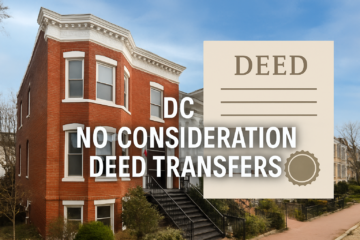In Montgomery County, Maryland, a limited common element (LCE) refers to a portion of the common elements in a condominium that is allocated for the exclusive use of one or more, but fewer than all, of the condominium units. Examples of LCEs include parking spaces or storage units. Conveying a Limited Common Element by deed requires careful attention to both legal requirements and the condominium’s governing documents. Here is a step-by-step guide to help you navigate this process.
Review the Condominium’s Governing Documents
Before conveying a Limited Common Element, review the condominium’s governing documents, including the declaration, bylaws, and any amendments. These documents outline the procedures and requirements for transferring an LCE. Some condominiums may require the approval of the board of directors or unit owners.
Obtain Necessary Approvals (If Necessary)
If the governing documents require approval for the conveyance, secure the necessary consents. This may involve a formal vote by the board of directors or the unit owners. Ensure that all approvals are documented in writing. This step is often not required, but you should check to be certain.
Draft the Deed
Engage a real estate attorney (Gentile Property Law Office) to draft the deed. The deed should clearly identify the LCE being conveyed, the grantor (current owner), and the grantee (new owner). It should also reference the condominium declaration and any relevant sections pertaining to the LCE. Precise language is crucial to avoid any ambiguities. That’s why hiring Home Buyers law to prepare the paperwork is an important step.
Execute the Deed
Both the grantor and grantee must sign the deed in the presence of a notary public. Notarization is essential to validate the deed and make it legally binding.
At Gentile Property Law Office, we offer grantors and grantees the ability to sign the documents using our remote electronic online platform. Instead of having to take time off from work, drive to a location, find and pay for parking, and then drive back, you can just login using your laptop or tablet and sign the documents in just minutes.
Record the Deed
Submit the executed deed to the Montgomery County Clerk of the Circuit Court for recording. The recording process makes the conveyance part of the public record and ensures that the new ownership is legally recognized. This is a crucial part of the process so should be handled by an experienced attorney. This step is of course handled by Gentile Property Law Office.
Update the Condominium Records
Notify the condominium association of the conveyance and provide them with a copy of the recorded deed. The association should update its records to reflect the new ownership of the LCE.
Hire a Professional
Conveying a limited common element by deed in Montgomery County, Maryland, involves careful attention to legal requirements and condominium governance. Contact joseph@gentileproplaw.com to ensure that the process is completed properly.



0 Comments